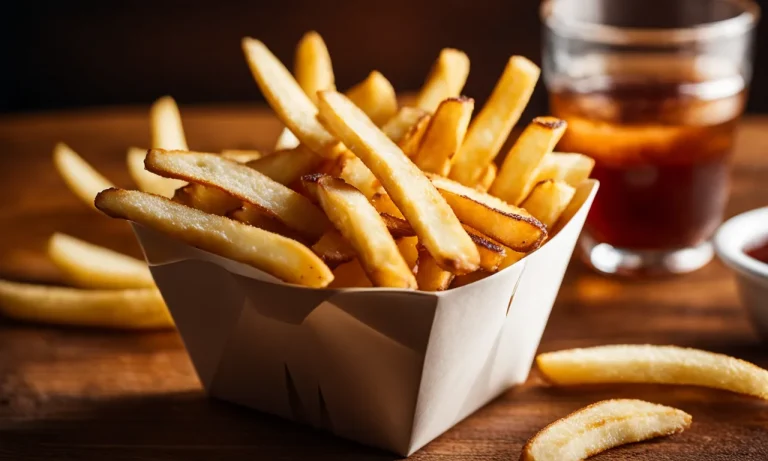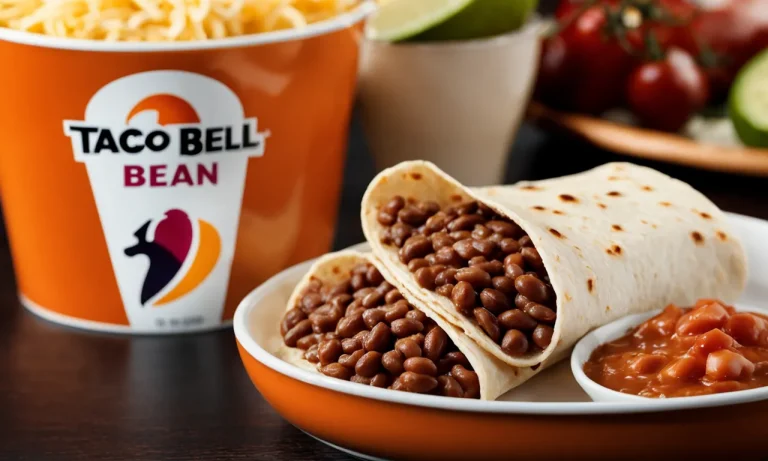Delta Hindu Meal Vs. Asian Vegetarian – Which To Choose?
When booking a flight on Delta as a vegetarian, you’ll likely come across two main special meal options – Hindu meal and Asian vegetarian. Both are plant-based, but what exactly do they consist of and how do they differ?
If you want to determine which Delta special meal best fits your dietary needs and restrictions, keep reading.
Here’s a quick answer: Delta’s Hindu meal avoids beef and pork, containing dishes like vegetable biryani or chana masala with rice. The Asian vegetarian meal has items like vegetable fried rice, tofu stir-fries, and dumplings.
The Hindu meal is vegan while the Asian vegetarian meal is ovo-lacto vegetarian, meaning it may contain eggs and dairy.
Overview of Delta’s Hindu Meal
When traveling with Delta Airlines and looking for a vegetarian meal option, the Hindu Meal is one of the choices available. This meal is specifically designed to cater to the dietary preferences of Hindu passengers, as well as those who prefer vegetarian dishes.
Let’s take a closer look at what you can expect from Delta’s Hindu Meal.
Does not include beef or pork
One of the key features of Delta’s Hindu Meal is that it does not include any beef or pork. This is in line with Hindu dietary restrictions, as many Hindus do not consume these meats due to religious beliefs.
By omitting beef and pork from the meal, Delta ensures that Hindu passengers can enjoy a meal that aligns with their food choices.
Typically contains vegetable curry dishes
The Hindu Meal on Delta flights often includes a variety of delicious vegetable curry dishes. These dishes are usually made with a blend of aromatic spices and fresh vegetables, creating a flavorful and satisfying meal.
From creamy paneer tikka masala to spicy vegetable biryani, the Hindu Meal offers a range of options for those who enjoy Indian cuisine.
Vegan ingredients and preparation
For passengers who follow a vegan diet, the Hindu Meal is a suitable choice. The meal is prepared using vegan ingredients, which means it does not contain any animal products such as dairy or eggs. This makes it a great option for those who adhere to a strict plant-based diet.
Delta takes special care in ensuring that the Hindu Meal meets the dietary requirements of vegan passengers.
It’s worth noting that availability of the Hindu Meal may vary depending on the route and flight duration. Therefore, it’s always a good idea to check with Delta Airlines prior to your flight to confirm the availability of this meal option.
Overview of Delta’s Asian Vegetarian Meal
When it comes to in-flight dining options, Delta Airlines offers a range of meal choices to cater to the diverse preferences of its passengers. One such option is the Asian Vegetarian meal, which is a popular choice among travelers looking for a vegetarian option that reflects the flavors of Asia.
Ovo-lacto vegetarian, may have eggs/dairy
The Asian Vegetarian meal provided by Delta Airlines follows the ovo-lacto vegetarian diet, which means it includes eggs and dairy products. This ensures that passengers who consume these ingredients can still enjoy a satisfying and flavorful meal during their flight.
It’s important to note that individuals with stricter dietary restrictions, such as vegans, may need to explore other meal options or make special arrangements with the airline in advance.
Usually consists of stir-fries, fried rice, dumplings
The Asian Vegetarian meal typically includes a variety of dishes that are inspired by the vibrant and diverse cuisines of Asia. Passengers can expect to find a selection of stir-fries, fried rice, and dumplings in their meal.
These dishes are often packed with aromatic spices and fresh vegetables, providing a delightful combination of flavors and textures that are sure to please the taste buds.
Often has tofu and vegetable dishes
Tofu and vegetable-based dishes are also commonly featured in Delta’s Asian Vegetarian meal. Tofu, a versatile and protein-rich ingredient, is frequently used as a substitute for meat in vegetarian cuisine.
Alongside tofu, expect to find an array of colorful and nutritious vegetable dishes that showcase the region’s culinary diversity. From flavorful curries to crispy stir-fried greens, these dishes are designed to provide a well-rounded and satisfying dining experience.
For more information on Delta’s meal options, including the Asian Vegetarian meal, you can visit Delta’s official website.
Comparing Nutrition and Ingredients
Hindu meal uses ghee and vegetable oils
The Hindu meal, also known as the “Hindu Vegetarian Meal,” is a popular choice for those who follow a vegetarian diet. It typically includes a variety of vegetables, lentils, rice, and chapati (Indian flatbread).
One notable ingredient in the Hindu meal is ghee, which is clarified butter commonly used in Indian cuisine. Ghee adds a rich flavor to the meal and provides a good source of healthy fats. Vegetable oils are also used in the preparation of the Hindu meal, ensuring that it remains suitable for vegetarians.
Asian meal may use butter, milk, eggs
The Asian Vegetarian Meal, on the other hand, may include ingredients such as butter, milk, and eggs. While these ingredients do make the meal suitable for lacto-vegetarians, it is important for vegans or those with dairy or egg allergies to note that these ingredients may be present.
However, it is worth mentioning that many airlines offer vegan options within the Asian Vegetarian Meal category, which exclude dairy and eggs.
Both focus on plant-based protein sources
Regardless of the specific ingredients used, both the Hindu meal and the Asian Vegetarian Meal prioritize plant-based protein sources. Legumes, such as lentils and chickpeas, are commonly included in both meals. These provide a good source of protein, fiber, and essential nutrients.
Additionally, tofu and tempeh, which are soy-based products, are often incorporated into the Asian Vegetarian Meal, offering an alternative protein option.
When choosing between the Delta Hindu Meal and the Asian Vegetarian Meal, it ultimately comes down to personal preference and dietary restrictions. If you are lacto-vegetarian, the Asian Vegetarian Meal may be a suitable choice.
However, if you prefer a meal that uses ghee and vegetable oils, the Hindu meal may be more appealing to you. It is always a good idea to check with the airline and read the meal descriptions carefully to ensure that the meal aligns with your dietary needs.
Taste Preferences to Consider
Hindu meal offers bold Indian cuisine
If you are someone who enjoys bold and flavorful Indian dishes, then the Delta Hindu meal is the perfect choice for you. This meal option is designed specifically for passengers who follow Hindu dietary restrictions and preferences.
It typically includes a variety of vegetarian dishes that are rich in spices and flavors, such as curries, lentils, and rice. The Hindu meal is known for its aromatic spices and unique taste combinations that are sure to tantalize your taste buds.
So, if you are a fan of Indian cuisine and want to savor the authentic flavors at 35,000 feet, the Hindu meal is a great option to consider.
Asian meal has lighter Chinese/Japanese dishes
On the other hand, if you prefer lighter and more subtle flavors, the Asian Vegetarian meal might be the better choice for you. This meal option typically includes a variety of Chinese and Japanese-inspired dishes that are lighter in taste compared to the bold Indian flavors.
You can expect dishes like stir-fried vegetables, steamed rice, and tofu-based dishes. The Asian Vegetarian meal provides a healthier and lighter alternative while still offering a delightful culinary experience.
So, if you are looking for a meal that is both nutritious and delicious, the Asian Vegetarian meal is worth considering.
Try samples at the airport to choose
Choosing between the Delta Hindu meal and the Asian Vegetarian meal can be a difficult decision, especially if you have never tried them before. One way to make an informed choice is to try samples of both meals at the airport before your flight.
Many airlines offer food tasting stations where you can sample different meal options. This will allow you to experience the flavors and decide which one suits your taste preferences the best. Additionally, you can also consult the airline’s website or customer service for more information on the specific ingredients and flavors of each meal option.
Remember, the choice between the Delta Hindu meal and the Asian Vegetarian meal ultimately comes down to your personal taste preferences. So, whether you prefer the bold and spicy flavors of Indian cuisine or the lighter and more subtle tastes of Chinese and Japanese dishes, both options offer a delightful culinary experience at 35,000 feet.
Ordering and Confirming Your Meal
When it comes to ordering and confirming your meal preference, there are a few important steps to keep in mind. Whether you opt for a Delta Hindu Meal or an Asian Vegetarian option, taking the necessary precautions will ensure a smooth and enjoyable journey.
Double check meal code when booking flight
When booking your flight, it’s crucial to double check the meal code associated with your preferred meal option. This will help avoid any confusion or mix-ups during your journey. Make sure to clearly indicate whether you prefer a Delta Hindu Meal or an Asian Vegetarian option to ensure that the airline is aware of your dietary requirements.
Notify crew ahead of time about allergy needs
If you have specific dietary restrictions or allergies, it’s always a good idea to notify the airline crew ahead of time. This will allow them to make the necessary arrangements and provide you with a suitable meal option.
Safety should always be a top priority, and by informing the crew about your needs, you can ensure that your flight experience is both comfortable and worry-free.
Have backup snacks in case of mix-ups
While airlines strive to provide the requested meal options, unexpected mix-ups can sometimes occur. To avoid any inconvenience, it’s wise to have some backup snacks on hand. Packing some non-perishable snacks that align with your dietary preferences can be a great way to ensure you have something to sustain you throughout the flight, just in case your requested meal is not available.
Remember, when it comes to ordering and confirming your meal preference, being proactive and prepared is key. By double checking your meal code, notifying the crew about any allergies or restrictions, and having backup snacks, you can have peace of mind and enjoy your flight to the fullest.
Conclusion
When flying Delta Airlines as a vegetarian, either the Hindu or the Asian vegetarian meal is a good option, just depending on your dietary needs and taste preferences. Try both to see which cuisine you prefer at 35,000 feet!







